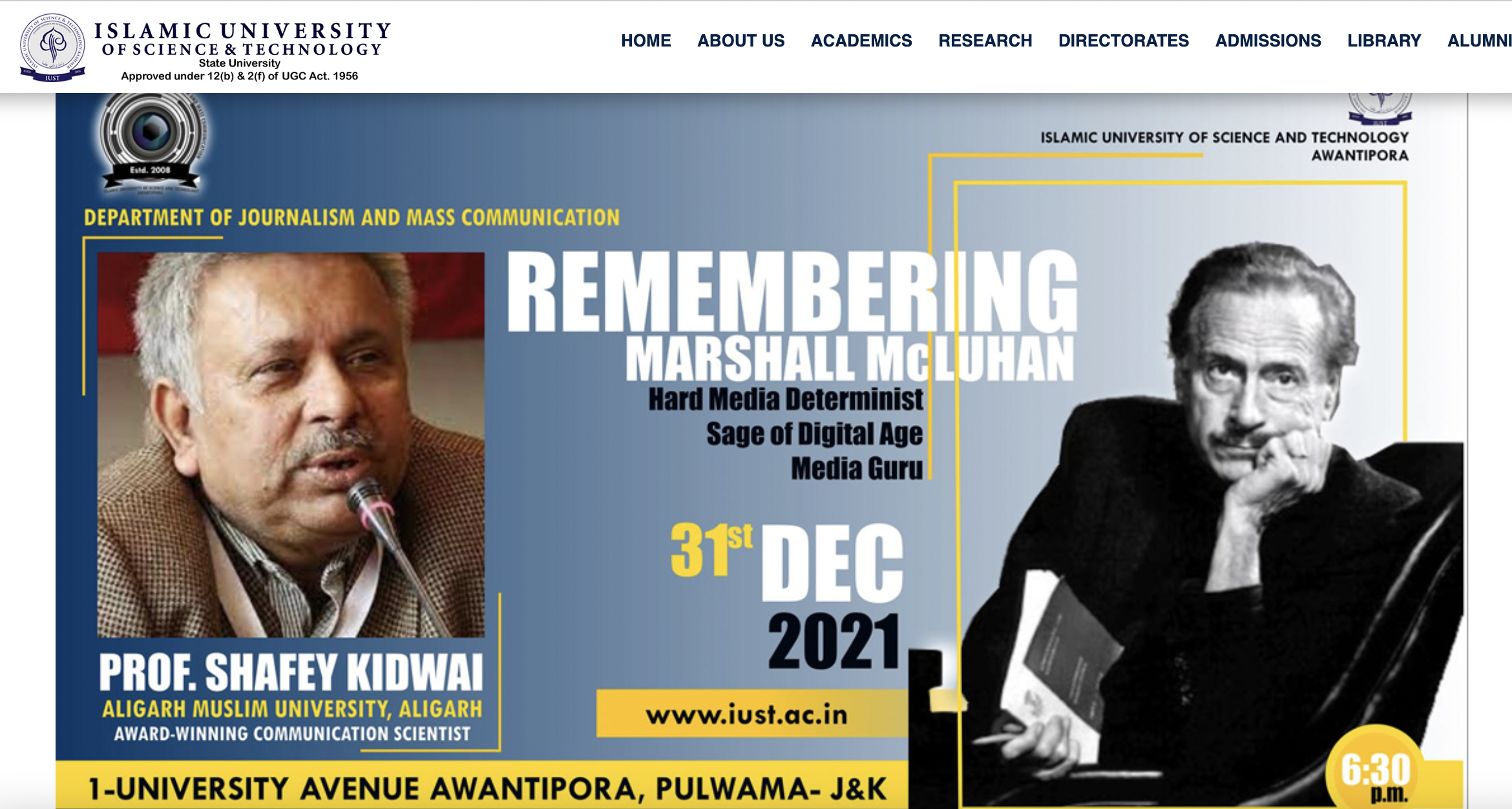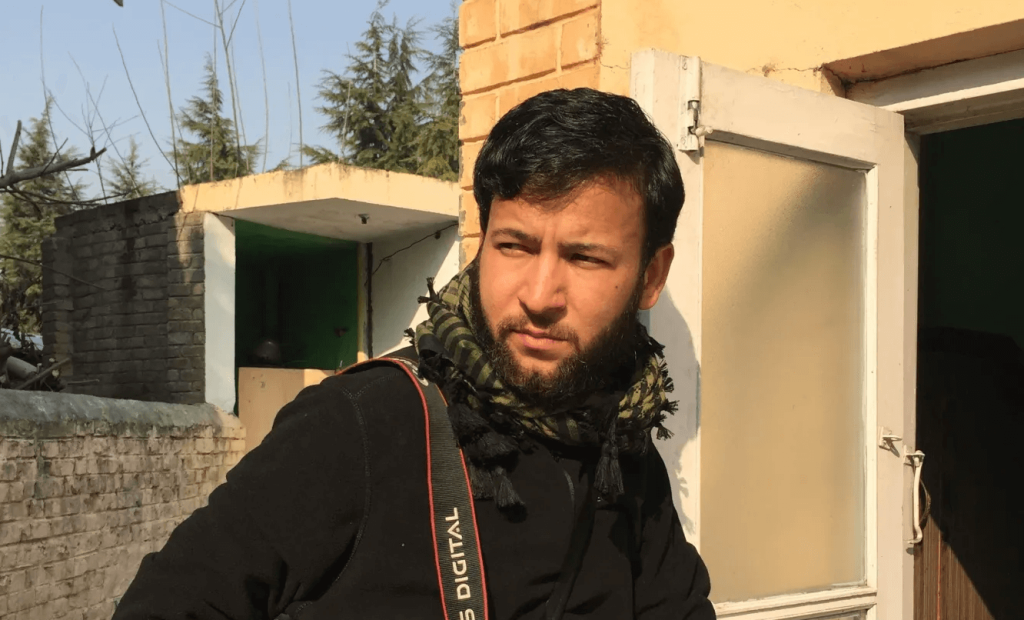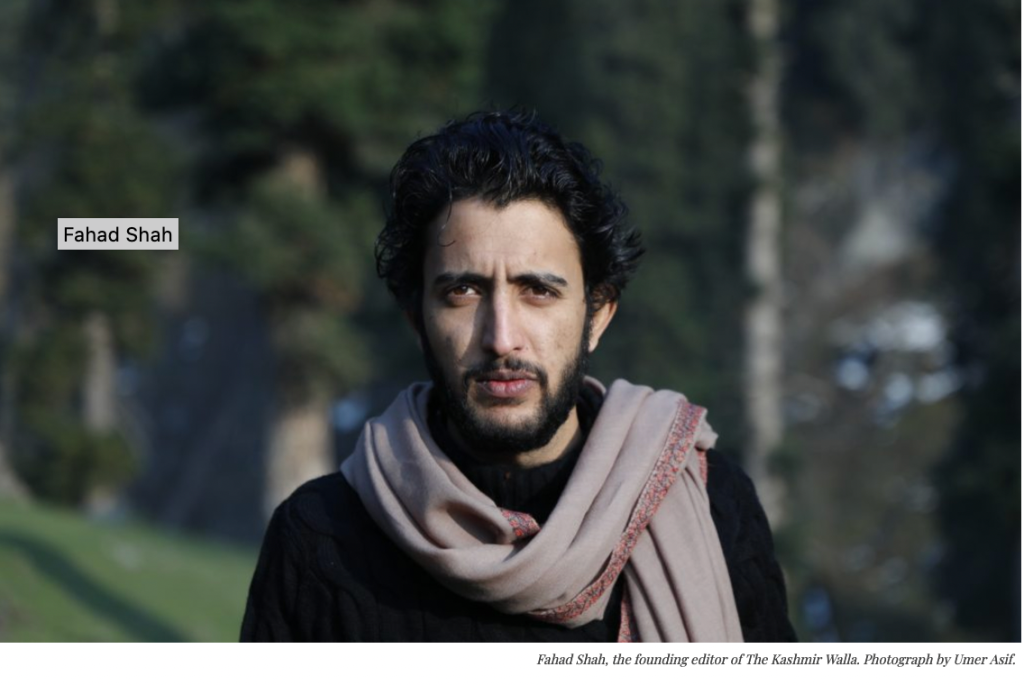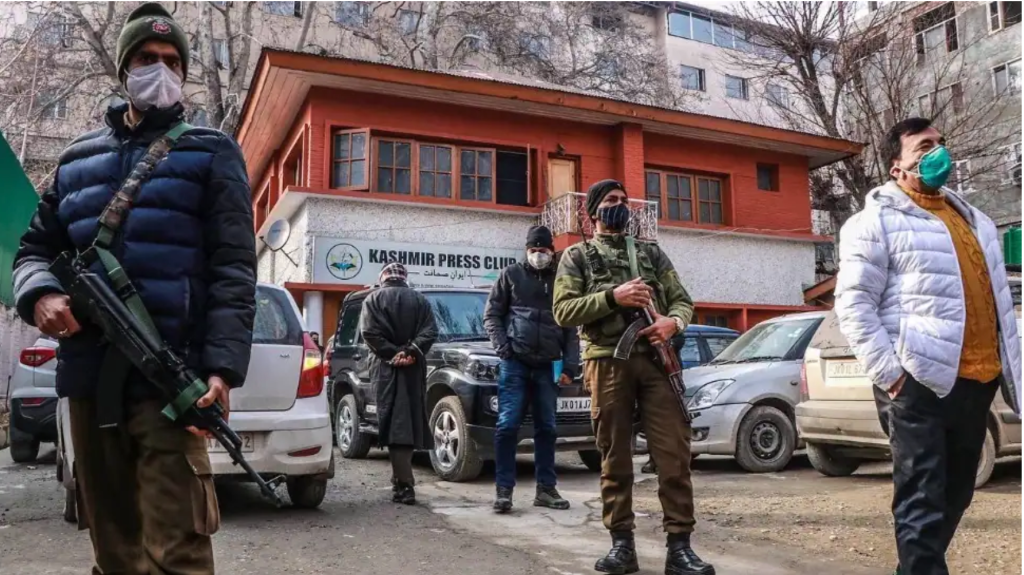Frequent summons, arrest of journalists is having a chilling effect on journalism students and aspiring journalists in Kashmir, writes Majid Maqbool
The recent closure of Kashmir Press Club (KPC) by the government following its sudden takeover, and more recent summons and arrest of journalism student and trainee reporter Sajad Gul, who was subsequently booked under stringent Public Safety Act (PSA), and recently arrested Kashmir Walla editor Fahad Shah who, according to police, was among “some Facebook users and (news) portals” that had published “anti-national content”, is having a chilling effect on journalism students and aspiring journalists in Kashmir.
(Note: Shah, who was arrested on charges of sedition under the Indian Penal Code (IPC) and under the Unlawful Activities (Protection)Act, 1967, was granted interim bail on February 26, 2022, by the special court under NIA Act in Srinagar, after 22 days of custody. However, by evening of the same day, his custody was taken over by Shopian police in another case registered against the Kashmir Walla’s reporting in January 2021. He is now lodged in ImamSahib police station under FIR 06/2021, with charges under Sections 153 (wantonly giving provocation with intent to cause riot) and 505 (statements conducing to public mischief) of the Indian Penal Code, a statement from The Kashmir Walla said).
College and university journalism students are now more fearful of pursuing journalism as a career after completing their degrees. They’re even thinking of switching their careers given the worsening work environment and increased harassment of journalists especially since the abrogation of Article 370 and bifurcation of the state into two union territories post August 5, 2019.
Journalism teachers at different colleges and universities of Kashmir, and journalism students pursuing their undergraduate and postgraduate studies in mass communication and journalism, are more concerned about the worsening work environment and increased restrictions on freedom of press and journalists in the valley.

Raashid Andrabi, who earlier completed his Bachelor’s in Journalism and is currently in the final year of his Masters program in the Department of Journalism and Mass communication at Islamic University of Science & Technology (IUST), Awantipora said that even after five years of journalism studies, he doesn’t feel he is ready to pursue journalism as a full-time career given the worsening situation and frequent summons and arrest of journalists in the valley especially post August 5, 2019.
The recent arrest of journalism student Sajad Gul and Kashmir Walla editor Fahad Shah has come as a shock for aspiring journalists like Raashid and his classmates as they near the end of their academic year. On February 19, the Jammu and Kashmir Police were ordered to arrest and produce well known journalist and author Gowhar Geelani before an executive magistrate in south Kashmir’s Shopian.


“Sajad was our senior in college and we looked up to him and journalists like Shah. Their arrest has come as a shock and sent shivers down our spine. Me and my classmates are having second thoughts about whether we should make a career in this profession now,” said Andrabi. The overall dismal state of the local media, frequent summons, arrest of journalists, and increased intimidation of journalists post August 5, 2019 in Kashmir is discouraging journalism students and aspiring journalists like him from pursuing a career in journalism.
“It’s becoming increasingly difficult for us to continue in the same field here,” he said.
“Kashmir Press Club’s recent shutdown has also left us on our own. I can’t meet seasoned professionals and spend time with others from the same fraternity at a single place, which was an opportunity provided by the club,” said Andrabi.
Clearly, there has been a shift in the manner journalism is done and how people perceive it. Given the environment of fear and increased censorship and surveillance faced by Kashmiri journalists, journalism students are looking at pursuing different fields under mass communication after completing their degree.
“What is happening with this profession over the last few years here is adding to the anxiety of journalism students and also our parents who are worried about us,” a student said, speaking on condition of anonymity. “Journalism doesn’t look like a promising career option in Kashmir now,” the student added.
Arjuman (name changed), another aspiring journalist from south Kashmir who is currently pursuing her Bachelor’s in Journalism from Cluster University Srinagar, believes that the recent arrest of journalism student Sajad Gul and journalist Fahad Shah will have a huge impact on how journalism students will look at journalism profession in Kashmir. She says more of her classmates, including juniors and seniors, are thinking of not pursuing a career in the field given the overall environment of fear and censorship.
“Most of my classmates are not sure about pursuing journalism as we believe it’s becoming dangerous to practice even independent journalism in Kashmir,” she said. “There is increased apprehension among us and our parents who don’t want us to continue in the field after completing our journalism courses as they naturally fear for our safety. No one wants their family to suffer because of their work.”
She believes a Kashmiri journalist is not free to report the truth and give voice to the voiceless in Kashmir. In other words, she adds, a journalist is not even free to put together all the elements for a story which he or she is otherwise taught during journalism courses.
“I know many of my classmates who may not be allowed to work in the field by their parents given the safety concerns here. Some are somehow able to convince their parents but still their concerns remain and they are worried about their children,” she said. “The frequent summons and arrest of journalists by the police has created an environment of fear for journalism students as well. There are many journalism students we know who want to pursue a different field now as they don’t find themselves secure in this profession here.”
A journalism professor who teaches mass communication and journalism courses in one of the Kashmir universities, wishing not to be named as she feared reprimand, said that post the abrogation of Article 370 on August 5, 2019, the local media has been crippled and censored in more ways than one.
“The clampdown also led to mass layoffs and salary cuts which obviously is a matter of huge concern especially for those who are at the onset of their career in media. Press censorship and surveillance of journalists has only added to the concerns of journalism students and aspiring journalists,” the professor said, adding that there are still some passionate budding journalists and journalism graduates who are determined to work in the field despite all odds and “willing to give their blood and sweat to this profession.”
The professor said the recent government move to suddenly close Kashmir Press Club following a takeover by a few journalists has also disheartened journalism students who got an opportunity to interact formally and informally with young and senior journalists who would often assemble at the club.

The professor is however hopeful that more young people will continue to opt for journalism courses and choose the profession despite all the pressures and a difficult working environment.
“In Kashmir, journalism has always been synonymous to conflict reporting and we have actually lost many journalists to the conflict here over the years,” she said.
“We have seen arrests and summoning of journalists in the past too but that has never stopped those who wanted to pursue journalism seriously.”
Another journalism lecturer in a government run college in Srinagar, who also wished to remain anonymous citing the prevalent situation and increased surveillance on journalism teachers as well, said that the recent summons and arrest of Kashmiri journalists will, if not completely discourage them, only add to the doubts among journalism students and aspiring journalists who want to cover all aspects of conflict in Kashmir.
He remembers when Kashmiri photographers working for Associated Press bagged Pulitzer Prize a few years ago for their work, his students were elated. Whenever any Kashmiri journalist bags some award for conflict reportage, he said, it inspires and lifts the spirit of journalism students.
“Similarly if journalists here land in trouble for their reportage, it’s bound to have a contrary effect,” he said adding although conflict and politics is the mainstay of journalism in Kashmir, students may also be interested and in fact excel in other apolitical and hence “safer” beats.
“Besides, I think they realize the odds are stacked against them when they actually start working full-time on the ground. This realization comes from the self-censoring editorial policies set by their organizations,” he added. “While they are still studying, they have more idealist considerations than practical compulsions in mind.”
The journalism teacher said before its closure, his students seemed to be more attracted to Kashmir Press Club (KPC) than Press Enclave (Press Colony) which houses prominent media houses. As more Kashmiri journalists started freelancing and contributing to reputed Indian and international news outlets in recent years, most of these young freelancers could be found at KPC.
“KPC evoked a sense of belongingness among the younger lot as it was more accessible and provided a conducive atmosphere beyond their classrooms where journalism students and aspiring journalists could learn by just being around senior professionals,” he said. “Students who aspire to get a big break and secure a byline in major organizations found KPC an ideal grooming place for freelancers with no strings attached but that is also gone for now.”
The journalism instructor said the more palpable concern among journalism students and aspiring journalists seems to be the scant news coverage of some prominent local newspapers which apparently have lost credibility also among journalism students.
“They can’t find much adversarial and watchdog journalism happening in these dailies in Kashmir. Post-Aug 5, 2019, the coverage has been reduced to reproducing press notes and writing puff pieces,” he said.
“The fact that alternative news outlets like ‘Kashmir Walla’ and ‘Free Press Kashmir’ etc. have become more popular among journalism students here than other prominent local dailies that have existed for decades shows that they do take the nature of news coverage seriously,” he added.
He pointed out that although none of his students have yet spoken of having second thoughts on choosing journalism as a career option, one thing is for sure – “the students read and reflect on the issues facing local media persons so they won’t be completely oblivious to the increased risk proposition in the profession.”
Besides, he added, how their parents will perceive the situation would most certainly have a bearing on the career decision of these students.
“Parents generally want their kids to have a safe and lucrative job,” he said. “On both counts, unfortunately, journalism fares poorly here these days.”
(Majid Maqbool is an independent journalist and editor based in Srinagar, Kashmir. He tweets @MaqboolMajid).
(Updated: Mar 2, 2022 with additional details)



1 thought on “#JournalismIsNotACrime but can Kashmir’s Journalism Students Take the Risk?”